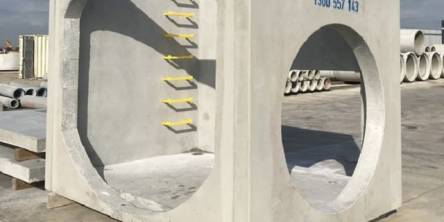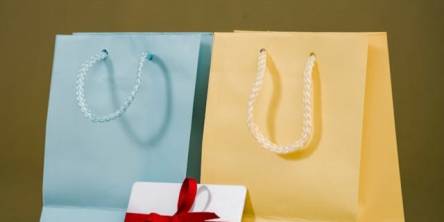6 Things We Bet You Don't Know About Rubber Stamps

Rubber stamps are pretty much integrated into our lives, regardless of whether they are used for business or for hobbies and activities like scrapbooking. One doesn’t really question the convenience it brings us, or it’s widespread popularity amongst users of all ages. However, there is more to rubber stamps apart from it’s useful nature or cost effective benefits.
If you would like to know more, here are 6 interesting facts you may not have known about rubber stamps:
Invention Source
When it comes to who exactly invented rubber stamps, the whole subject remains a controversial one. There were disputes on the actual inventor of the first rubber stamps. An individual by the name of L.F. Witherell, who resided in Knoxville (Illinois), is said to have claimed to be the inventor of the rubber stamps in 1866. He states that the discovery is made by fixing rubber markings and letters to the end of a bedpost with the intention of marking wooden pumps that were made with identifications. Yet despite so, they were never able to produce landmarked bedposts or other forms of evidence to sufficiently reveal that he is the actual inventor.
Then there’s James Orton Woodruff who resides in New York. He borrowed a vulcaniser from his uncle, who happened to work as a dentist. He is said to have claimed that the stamps and items that he has used for image printing remains, while the rubber portion were ruined by ink, which has contained solvents. There are of course other claimants who sought to claim to have invented the rubber stamps but of all who had attempted to do so, these two distinguished individuals have left the most credible sources.
Earliest Uses
It is discussed that some of the earliest uses of stamps have actually been discovered by Native Americans, who use them as a means to mark patterns onto their body for tattooing at a later stage. Even before rubber stamps were mass manufactured for use, there have been primitive versions of these rubber stamps around. They were used and made by hand in various different countries, with India being one of them. In India, primitive stamps are actually created with mud to mold shapes! The molded shapes are then decorated with colouring using other ingredients so that they can be stamped on different materials. Some cultures also took to making deep and more intricate impressions on thick layered hide, since they are resilient like rubber.
Unexpected Connections
One of the most surprising facts about rubber stamps is that it’s history can be said to have been closely connected with the field and industry of dentistry. This is because an invention created in the field of dentistry has actually ended up assisting with rubber usage in dentistry mould bases. It turns out that the small vulcanisers that have been popularly used by dentists of the time are actually ideal to mass produce rubber stamps!
Manufacturing Differences
Most individuals tend to assume that the rubber stamp manufacturers they go to and commission to customise their rubber stamps are the ones who made the product to completion. In actual fact, rubber stamp manufacturers are not the ones that are tasked with producing the elements required to create rubber stamps directly from their raw source. The raw materials are actually created by others known as specialty manufacturers with the purpose of supplying them to the rubber stamp makers for further assembly and use!
Materials Used
Since most business owners opt to go for ready made rubber stamps instead of unmounted rubber stamps, it can be difficult to understand how the actual process goes. The materials rubber stamp makers used are actually comprised of separate raw elements like latex rubber, mounting blocks of their choice (mostly acrylic or wood), adhesive backing for sticking and labels.
Byproducts or Waste
For the environmentally concerned, you will be pleased to find out that rubber stamps actually contribute to little waste, even when it comes to the manufacturing process. The manufacturers are trained to arrange and lay out rubber sheets in a manner that can minimise the amount of scrap material they will get. The remainings of rubber trimmings or adhering material left are therefore very little. Even if the design is continued or business owners no longer need to use the rubber stamps, they can actually choose to donate them to organisations or hospitals for crafting purposes!
Similar Articles
Moving to a new home or office can be both exciting and overwhelming. Whether you are relocating across town or just a few blocks away, choosing the right local moving company makes all the difference.
When planning construction projects involving precast concrete pits, choosing the right type is crucial for ensuring structural integrity and durability. These pits serve various purposes, from stormwater management to utility access, and the right selection can significantly impact a project's success.
Finding the right office space for rent can be a major decision for any business, whether you are a startup looking for a first area or an established company in need of expansion
Not only is packaging about preserving your product, it’s also about your company’s business processes. For those companies that transport products, poly bags are practical and cost-effective, a custom poly bag, even more so. It provides choice, resilience, and a business-like appearance that is beneficial to the customer.
The atmosphere of a restaurant is crucial, in creating a dining experience to remember and selecting the chairs is key to this process. Whether you own a cafe or a lively bistro the choice of chairs can greatly improve the attractiveness of your establishment making it comfortable and welcoming for visitors
Consider yourself a wholesale distributor of electronic components selling to various manufacturers worldwide. Traditionally, your approach to stocking inventory might involve estimation based on past orders and broad industry trends.
In today’s rapidly evolving global economy, businesses continuously seek innovative ways to stay competitive and optimize operational efficiency.
Optimize payroll processes with modern software! Save time, reduce errors, ensure compliance, and explore future trends for efficient business management.
Discover how an Employer of Record (EOR) streamlines cross-border hiring, ensuring compliance, reducing risk, and simplifying global workforce management.









